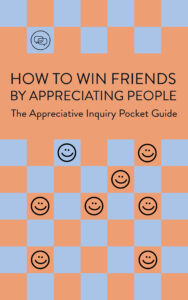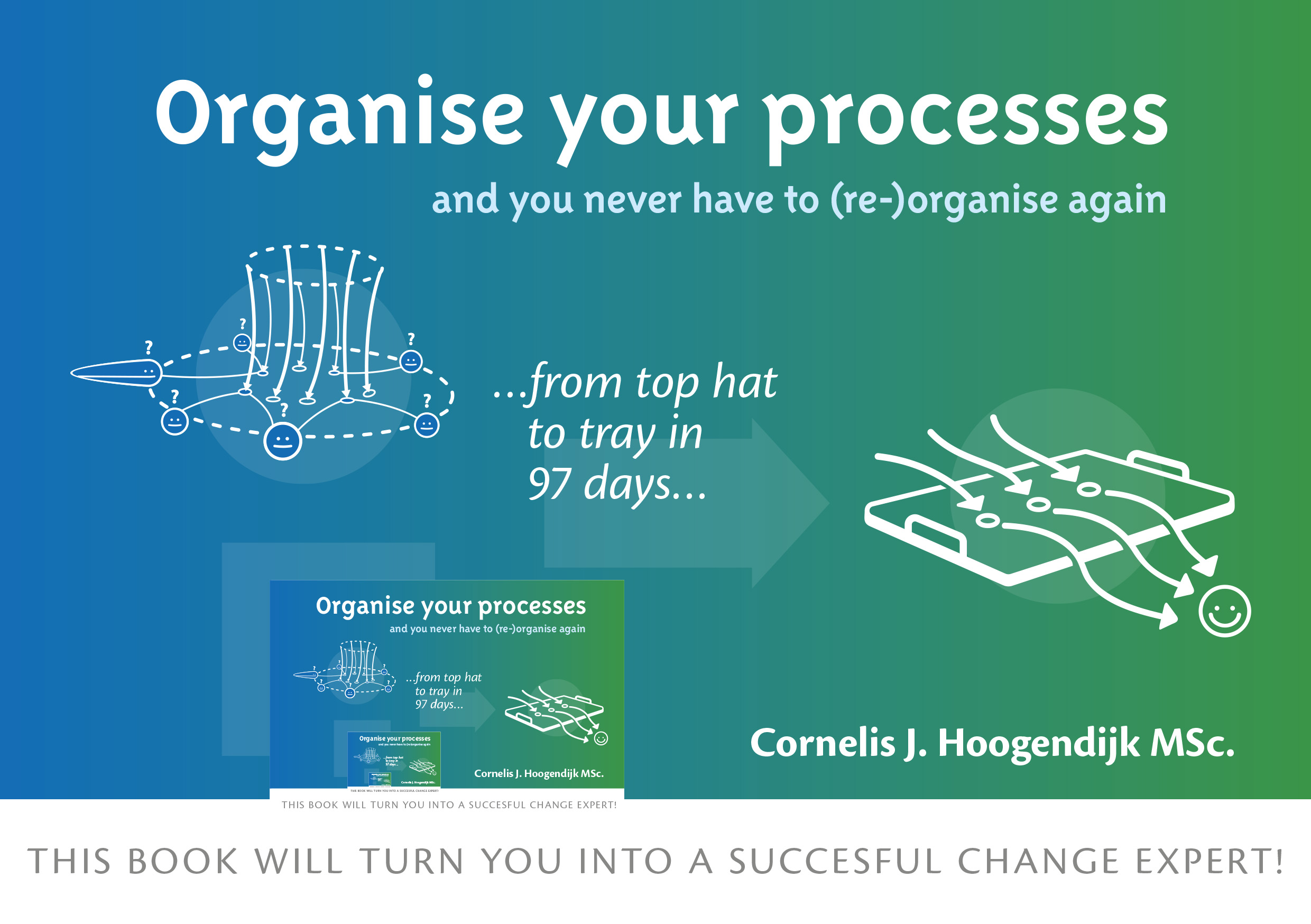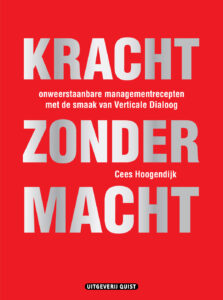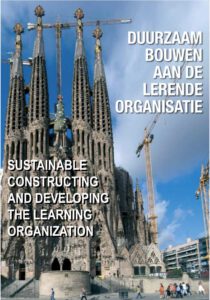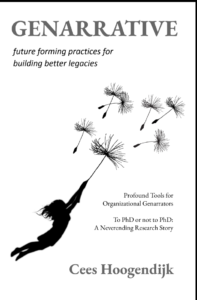Organizations Generate Perspectives ...
Time to Broaden your View?
Norway 2019. Photo by Cees Hoogendijk
Generating Business for Future Betterness
I can be your:
Thinking Partner
Positive Change Facilitator
Learning Architect
Process Revitalizer
Sometime Professor in
Business for Betterness
Writer & Speaker
Creative Disruptor
Professional Friend
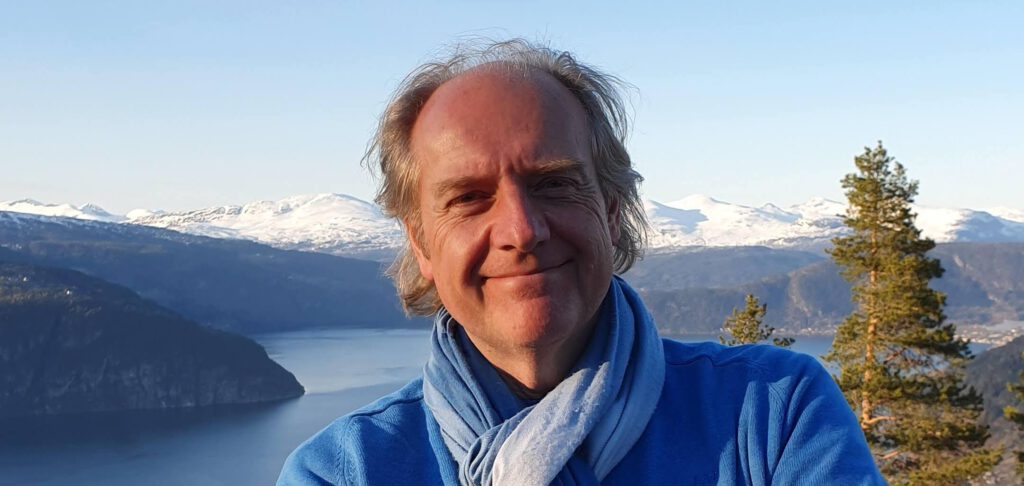
Shall we meet and explore?
- book a slot in my agenda
- [email protected]
- +31 616 682 098
- see my full bio and let's link
“Being 35 years in organizational change and development, I have witnessed that a fulfilling job coincides with high performance. Easier said than done, always rewarding. Humanization is my mission, generativity my expertise,
subtle disruption one of my qualities. Every organization houses like-minded professionals who want all stakeholders to flourish. Does this resonate?
Let us explore the options for a performative and future-forming co-creation.”
Cees J. Hoogendijk
Organizational Perspectivist
what future focused leaders already do
Seven Future-forming Practices for
Flourishing Stakeholders
pathways to exceed the extraordinary
Betterness Practice #1
Appreciative Inquiry
** NEW 2023 ** HOW TO WIN FRIENDS
BY APPRECIATING PEOPLE
The Appreciative Inquiry Pocket Guide
Selfstudy made quick and easy. Click here.
EXPLORE MORE
IDEIA E-learning Academy (EN-ES)
AI-Academy.nl & AI Magazines (EN-NL)
SERVICES
Personal and In-company Training, Workshops, Whole System Change
Strength Based Development
Diversity and Inclusion in Action
What is the best possible future we can create together? Imagine we would shape our world to our own advantage. That requires a new way of doing things. Appreciative Inquiry starts with discovering our strengths. It includes a growth mindset philosophy, a conversation practice and an organizational change method that discovers, empowers and converts the potential of people and institutions into constructive action. Appreciative Inquiry distinguishes itself from the classic problem oriented approach by paying attention to what works well and by building upon the abundance of possibilities.
Understanding Processes From Within
Improving Processes on the Boundaries
New organizing; it is a downright hype. The old piramyd is being flattened into a pancake? Successful organizations do not consist of managers who lead people, but of people who lead work processes. The better these people understand their processes, the easier it becomes to improve as a natural habit. In most organizations, the word ‘process’ seems to be reserved for a few specialists. Imagine all players assuming process responsibility. Then your organization really gets into flow. With the right understanding and practice – no rocket science – anyone can become a process manager.
Betterness Practice #2
Performative Processes
FREE BOOK DOWNLOAD
Process model, practices and training manual. Click for NL, EN, or ES version
EXPLORE MORE
Serious Simulation Game
The Management Challenge
SERVICES
Workshops, Training, Consulting, MD, Management Events
Betterness Practice #3
Connected Leadership
COMPARE YOURSELF WITH THE IDEAL CONNECTIVE LEADER
Do now the CLMirror Free Scan and get your Prsonal Profile
SERVICES
Expert report, Workshops, Team Analysis, Branded Version, Organizational Leadership Scan
Leadership = Collectively Producing Organization
A Connective Leader – considers organization as a focused and inclusive wholeness of people and activities – is convinced about the correlation between ‘convenient working’ and ‘well performing’ and acts accordingly – practises vertical dialogue and horizontal cooperation and recommends these amongst fellow leaders – aims for sustainable improvements that add value – considers ‘helping’ and ‘asking for help’ as the foundations for effective co-operation – sees employees as co-workers and enables them to explore and apply their talents – provides co-workers the information they need to perform well – seeks continuously the balance between organizational objectives and the interests of co-workers, customers and society.
Change is Natural for Some, and
a Struggle for Others. Move Together.
The idea of inclusive change is to involve the ‘whole system’ and have their voices included from the start. Not that every individual should be invited at every discussion; change enablers better be aware and informed about the multi-dimensional perception of change. The idea of inclusive change is that anybody in favor of the change can and should be a change enabler, having the extra energy to support others in their suffering. Kotter’s change model is not universal; the eight steps vary in pace and appearance for each individual. Using Cantor to categorize the audience in four archetypes not only devaluates human potential, it also turns the change program into a risky adventure. And to be honest, there is no such thing as positive change. The idea of inclusive change is that everybody involved in the change feels and stays included.
Betterness Practice #4
Inclusive Change
WATCH VIDEO IMPRESSION
Don’t mind the Dutch language, just taste the inclusive ambiance and energy in this change preparation and activation summit. Click here.
EXPLORE MORE
Turn your managers into journalists and effectively Implement your strategic plan. Click for EN or NL example. Managers produced these!
SERVICES
Newspaper Events, AI Summits, Inclusive Change Design
Betterness Practice #5
Engaged Employees
FREE BOOK DOWNLOAD
STRENGHT WITHOUT FORCE: Irresistable Management Recipes with the Taste of Vertical Dialogue.
Click for NL full book or EN full text.
EXPLORE MORE
Download here the ultimate How Plan template, to create high engagement for your business strategy.
SERVICES
Constructive Team Meetings, Art of Hosting, The Circle Way, Sociocracy, Creative Communication
Only the Ones in Power can Transfer their Power
An organization’s existence depends highly on its strategy being shared. This means that, given realistic objectives, all managers and ideally all other employees can (literally) identify with the main activities to be carried out. In order to achieve this coherence, an open dialogue between the (management) echelons is the best way. A precondition for this, besides good preparation and guidance, is that managers during such dialogues relinquish their power to give free rein to opinions, ideas and meaning. Such a constructive conversation between policy producers and policy consumers, called Vertical Dialogue, enables trusted management and engaged employees.
The In-House Academy as Accelerator of
Sustainable Organizational Excellence
Does you organization have a training department? Congratulations, you’re having an in-house academy level one. You reach at level two when all employees are considered, proactively approached and monitored in their personal and functional development. An academy at level three has managed to integrate and align all company messages and communicate these through the best possible channels. At level four, your academy has become the smooth running engine of the learning organization. Growing through the four maturity levels of organizational learning requires constant cathedral thinking, co-creation and craftmanship. Building an in-house-academy is a positive business case whilst reaching excellent performance.
Betterness Practice #6
Learning Organization
TAKE YOUR FREE ACADEMY SCAN
Answer 16 questions for an expert view on how (mature) the learning is facilitated in your organization. Click for NL or EN.
EXPLORE MORE
Download the Profound Guidelines for Academy Builders (only in NL, contact me for EN consult).
SERVICES
Inspiration Sessions, Feasibility Studies, Academy Blueprints and Roadmaps, Training and Equipping your Academy-team
Betterness Practice #7
Organizational Generativity
GENARRATIVE - THE BOOK
Genarrative, Future Forming Practices
for Building Better Legacies (2023)
The story of a five year research journey
SERVICES
Inspirational Talk,
Practitioner Workshops,
Genarrative Thinking Partner
Your Organization’s Capability
to Create It’s Own Future
As the catastrophic consequences of the COVID-19 pandemic have made clear, organizational development (OD) is in urgent need of alternative pathways to the future. Organizational Generativity (OG) offers one such promising alternative. While much of OD practice and research are focused on enabling organizations to better prepare for an unknown future, OG accommodates new ways for organizations to proactively create their own future. Decades of OD experience and five years of intense research created clarity about how to understand and facilitate generative relational processes in organizations, and how they interact with the generativity of the whole organization.

